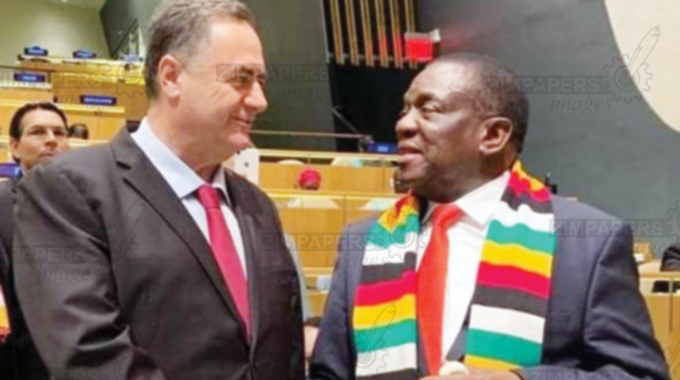Sanctions agenda and the bane of change blindness

Lawson Mabhena News & Politics Editor
When scholars Daniel Simons and Daniel Levin set out to investigate the phenomenon of “change blindness”, they conducted an experiment whereby a complete stranger would start a conversation with a pedestrian and following a brief disruption, the stranger would be substituted, but the pedestrian would not even notice.
The brief disruption involved two people carrying a door between the stranger and pedestrian in conversation, after which the pedestrian would continue with the conversation without noticing that they were now talking to a different person.
Psychologists describe change blindness as the tendency to miss changes in one’s immediate visual environment.
While change occurs regularly, in most instances, it goes unnoticed. However, failure to notice or acknowledge change does not stop change from occurring.
In Zimbabwe, the immediate visual political environment has changed dramatically over the past few years. For starters, in November 2017, the country had a new leader for the first time since the late national hero and former president Robert Mugabe assumed the reins in 1980.
The next landmark change was probably the peaceful environment under which elections were held to usher in the Second Republic. Local, regional and international electoral observer missions, some of whom had last came to Zimbabwe almost two decades ago, were invited to promote transparency.
No major incidents of violence or intimidation were recorded during the pre-election period and on voting day, July 30, 2018.
Although a violent demonstration instigated by the opposition MDC-Alliance led to the loss of life on August 1 as poll results were coming in, an international commission was set up to investigate the post-election violence.
The commission was chaired by Mr Kgalema Motlanthe, the former president of the Republic of South Africa, and composed of six other commissioners.
This was a first in the history of the country, with the findings of the Motlanthe Commission being made public in December of the same year.
On the constitutional front, major milestones have been achieved through the institution of media, political, electoral and legal reforms as well as the anti-graft drive.
The process of mending international relations and building investor confidence has also scored bigtime results with international oganisations and regional blocs reaching out to the new administration.
It is, therefore, without a doubt that change has occurred on Zimbabwe’s political landscape.
However, brief interruptions by individuals and countries bent on giving life to illegal sanctions imposed by the West, have resulted in change blindness.
As a result of this change blindness, political discourse has been very poor, based on untruths and intolerant of level-headedness.
International relations and African political economy expert, Professor Ian Taylor, attributed the poor discourse in most African countries to intellectual chancers motivated by fat cheques from Western countries, which are ever-willing to fund the promotion of their hegemony.
“A major issue with this regard is that in most African countries there is a real lack of any serious ideological debate about the type of social system that will engender development and ensure broad improvements in the standard of living of the people. Intellectuals, who might critically contribute to this debate, are generally marginalised, while the popular sphere is dominated by opportunists — many sourcing their funding from the West — who promote the discourse that there is no alternative to neoliberal reform,” Prof Taylor wrote in “Africa Rising”.
The opportunists dominating the ideological debate in Zimbabwe are already celebrating what some sections of the media have called “a damning report on Zimbabwe” by the United Nations Special Rapporteur on Human Rights, Mr Clement Nyaletsossi Voule.
Zimbabwe Hospital Doctors’ Association (ZHDA) president Dr Peter Magombeyi’s convenient abduction has also been used to cement claims of human rights abuse by Government.
Intellectuals have been marginalised from the Dr Magombeyi debate whose order of events are in direct defiance of the logic of thinking.
The entire debacle was choreographed to allow for a “damning” report to give impetus to illegal sanctions. Under the plan, the brief disruption would ensure Mr Voule’s change blindness.
The Harvard Medical School’s U-turn on the honour it bestowed on First Lady Auxillia Mnangagwa for her charity work, is also telling.
What Harvard intellectuals said in the first instance when bestowing the honour is the truth. It is a truth that would clash with the Magombeyi narrative.
The intellectuals backed down, but those with ears have heard — change has come to Zimbabwe’s health sector.
The opportunists are, indeed, revelling in a hollow victory. A victory based on lies, deceit and self-hate. A victory that is actually a loss to the people of Zimbabwe.
An adverse report by Mr Voule is not worth celebrating as the effects will not just hurt President Mnangagwa and his Government, but the ordinary man in the street, the ordinary granny in the fields and the ordinary child in a central hospital.
The sooner Zimbabweans realise that the sanctions agenda is not their own, the better.










Comments